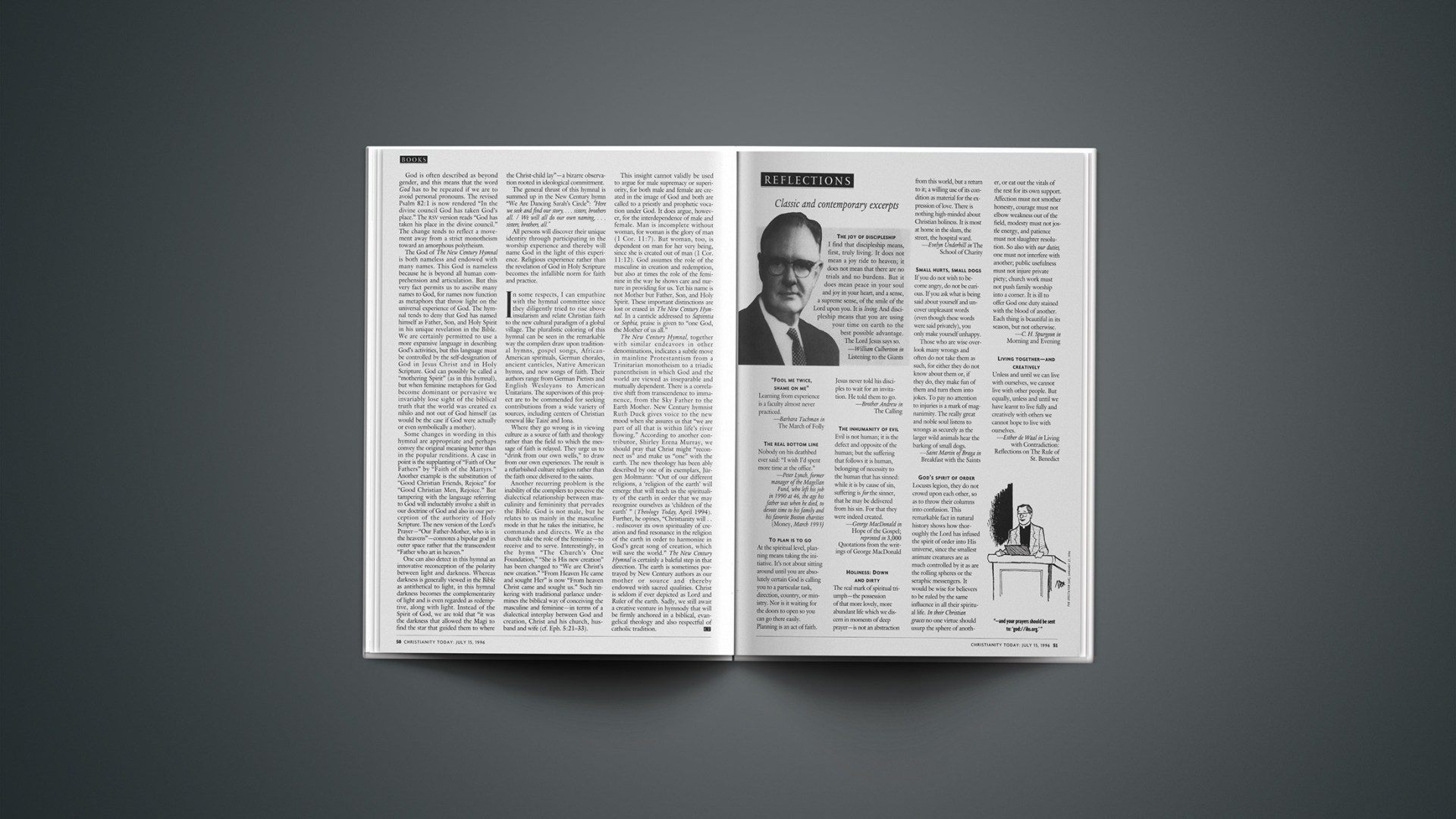THE JOY OF DISCIPLESHIP
I find that discipleship means, first, truly living. It does not mean a joy ride to heaven; it does not mean that there are no trials and no burdens. But it does mean peace in your soul and joy in your heart, and a sense, a supreme sense, of the smile of the Lord upon you. It is living. And discipleship means that you are using your time on earth to the best possible advantage. The Lord Jesus says so.
William Culbertson in “Listening to the Giants”
“FOOL ME TWICE, SHAME ON ME”
Learning from experience is a faculty almost never practiced.
Barbara Tuchman in “The March of Folly”
THE REAL BOTTOM LINE
Nobody on his deathbed ever said: “I wish I’d spent more time at the office.”
Peter Lynch, former manager of the Magellan Fund, who left his job in 1990 at 46, the age his father was when he died, to devote time to his family and his favorite Boston charities (“Money,” March 1993)
TO PLAN IS TO GO
At the spiritual level, planning means taking the initiative. It’s not about sitting around until you are absolutely certain God is calling you to a particular task, direction, country, or ministry. Nor is it waiting for the doors to open so you can go there easily. Planning is an act of faith. Jesus never told his disciples to wait for an invitation. He told them to go.
Brother Andrew in “The Calling”
THE INHUMANITY OF EVIL
Evil is not human; it is the defect and opposite of the human; but the suffering that follows it is human, belonging of necessity to the human that has sinned: while it is by cause of sin, suffering is for the sinner, that he may be delivered from his sin. For that they were indeed created.
George MacDonald in “Hope of the Gospel;” reprinted in “3,000 Quotations from the writings of George MacDonald”
HOLINESS: DOWN AND DIRTY
The real mark of spiritual triumph–the possession of that more lovely, more abundant life which we discern in moments of deep prayer–is not an abstraction from this world, but a return to it; a willing use of its condition as material for the expression of love. There is nothing high-minded about Christian holiness. It is most at home in the slum, the street, the hospital ward.
Evelyn Underhill in “The School of Charity”
SMALL HURTS, SMALL DOGS
If you do not wish to become angry, do not be curious. If you ask what is being said about yourself and uncover unpleasant words (even though these words were said privately), you only make yourself unhappy.
Those who are wise overlook many wrongs and often do not take them as such, for either they do not know about them or, if they do, they make fun of them and turn them into jokes. To pay no attention to injuries is a mark of magnanimity. The really great and noble soul listens to wrongs as securely as the larger wild animals hear the barking of small dogs.
Saint Martin of Braga in “Breakfast with the Saints”
GOD’S spirit of order
Locusts legion, they do not crowd upon each other, so as to throw their columns into confusion. This remarkable fact in natural history shows how thoroughly the Lord has infused the spirit of order into His universe, since the smallest animate creatures are as much controlled by it as are the rolling spheres or the seraphic messengers. It would be wise for believers to be ruled by the same influence in all their spiritual life. In their Christian graces no one virtue should usurp the sphere of another, or eat out the vitals of the rest for its own support. Affection must not smother honesty, courage must not elbow weakness out of the field, modesty must not jostle energy, and patience must not slaughter resolution. So also with our duties, one must not interfere with another; public usefulness must not injure private piety; church work must not push family worship into a corner. It is ill to offer God one duty stained with the blood of another. Each thing is beautiful in its season, but not otherwise.
C. H. Spurgeon in “Morning and Evening”
LIVING TOGETHER-AND CREATIVELY
Unless and until we can live with ourselves, we cannot live with other people. But equally, unless and until we have learnt to live fully and creatively with others we cannot hope to live with ourselves.
Esther de Waal in “Living with Contradiction: Reflections on The Rule of St. Benedict”
Copyright © 1996 Christianity Today. Click for reprint information.










